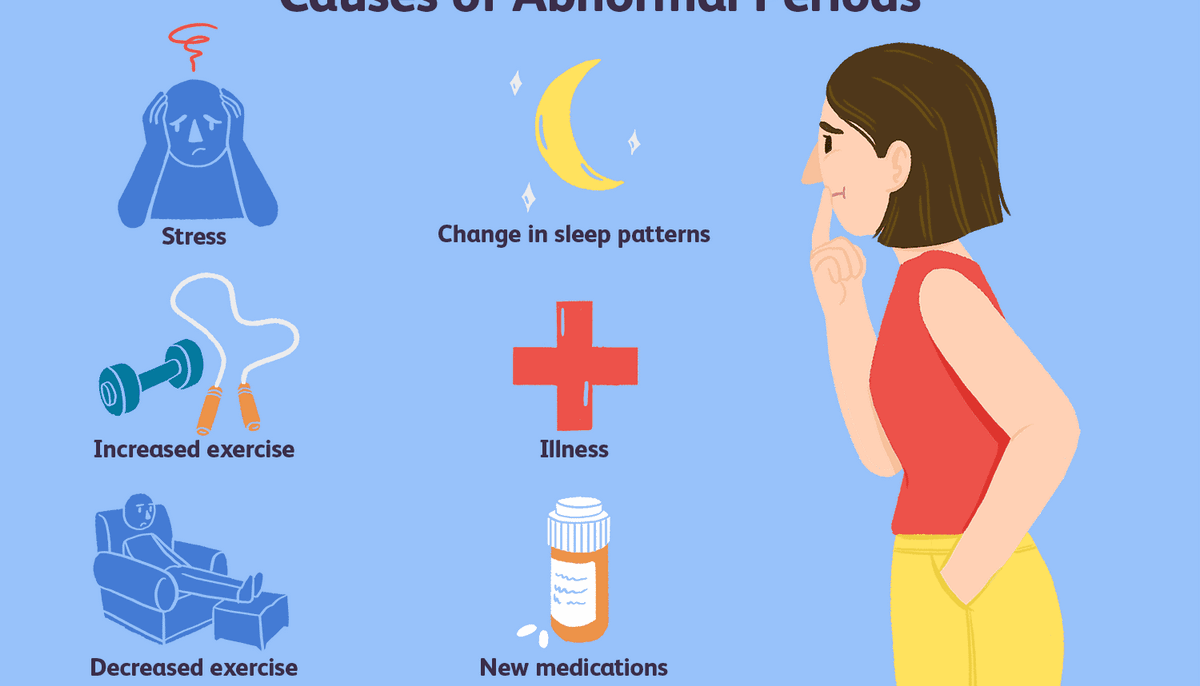It is very possible that you are among the women who have an irregular menstrual cycle. There is no need to worry. All you have to do is come to a specialist consultation to see what is the cause of irregular menstruation. Many times, the irregular menstrual cycle is due to a stressful period or the change of contraceptives, for example.
But these are not the only causes. An irregular menstrual cycle can hide other causes, most of them related to various gynecological diseases or dysfunctions of the endocrine glands.
A normal menstrual cycle for an adult woman lasts 28 days, starting with the first day of menstruation and ending with the first day of the next menstruation. In the case of teenage girls, a normal menstrual cycle can be between 21 and 35 days.
When the menstrual period does not fall within this interval, the menstrual cycle is considered irregular. Sometimes, it can be completely absent or it can be very painful.
Are there several forms of irregular menstrual cycle?
Yes, there are several forms of irregular menstrual cycle, the most common being:
- Amenorrhea - absence of the first menstrual cycle (menarche) in teenage girls up to 16 years of age or absence of the menstrual cycle in adult women, for a period longer than 3 months, without the woman being pregnant
- Polymenorrhoea - menstruation occurs in less than 21 days
- Oligomenorrhea - menstruation occurs more than 35 days after the last period.
Other common forms of menstrual cycle abnormalities are dysmenorrhea (painful menstruation), menorrhagia (abundant menstruation) and metrorrhagia (vaginal bleeding occurring during periods other than menstruation).
There are several causes that lead to irregular menstrual cycles. Some are hormonal, other causes are various gynecological conditions, which have not been diagnosed yet.
Often, however, irregular menstruation occurs during stressful periods or after changing contraceptive pills. The only way to find out the exact cause is specialist consultation.
Endometriosis, the cause of irregular menstruation
Sometimes the irregular menstrual cycle can be associated with endometriosis, a condition that can lead to infertility and can be treated surgically. This disease can affect the genital area or it can be located at a distance from it, affecting the neighboring organs. In general, the specific symptoms are pelvic pain, which immobilizes the patient in bed, digestive disorders, fatigue and heavy or irregular bleeding.
Polycystic ovary syndrome
Polycystic ovary syndrome is a hormonal disorder quite common among women of childbearing age. The exact causes of the onset of this condition are not fully known, but the main symptom is the irregular menstrual cycle. The first symptoms appear at puberty in some cases, from the first menstruation. Specialist consultation is the only method to diagnose this condition, so it is recommended to make an appointment as soon as possible, especially if you have other symptoms, such as excessive facial hair, alopecia, severe and persistent acne.
Uterine fibroids or polyps
Irregular menstruation can also be associated with uterine fibroids, which can also generate symptoms such as frequent bloating, constipation and pain in the lower abdomen, even lumbar.
Sexually transmitted diseases
Be careful, sexually transmitted diseases can also have irregular menstrual cycles as their main symptom. In general, this symptom is also accompanied by others, such as itching, changes in the color and smell of vaginal secretions, as well as pain or stinging when urinating.
Obesity
Women who have a body mass index of over 30 may have irregular menstrual cycles, the cause being obesity itself, which produces massive changes in the functioning of the entire body. If you suffer from obesity, it is very important to see a specialist, even more so if you want to get pregnant. In the case of overweight women, the risk of infertility is also increased.
Other causes for the occurrence of irregular menstrual cycles can be leukemia, menopause or premenopause, breastfeeding, as well as kidney and liver diseases.
Also, according to studies, women who have an irregular menstrual cycle have a higher risk of cardiovascular disease.
Very important, the visit to the doctor becomes urgent when you have a high fever, severe pelvic or abdominal pain, as well as vaginal bleeding between periods.







